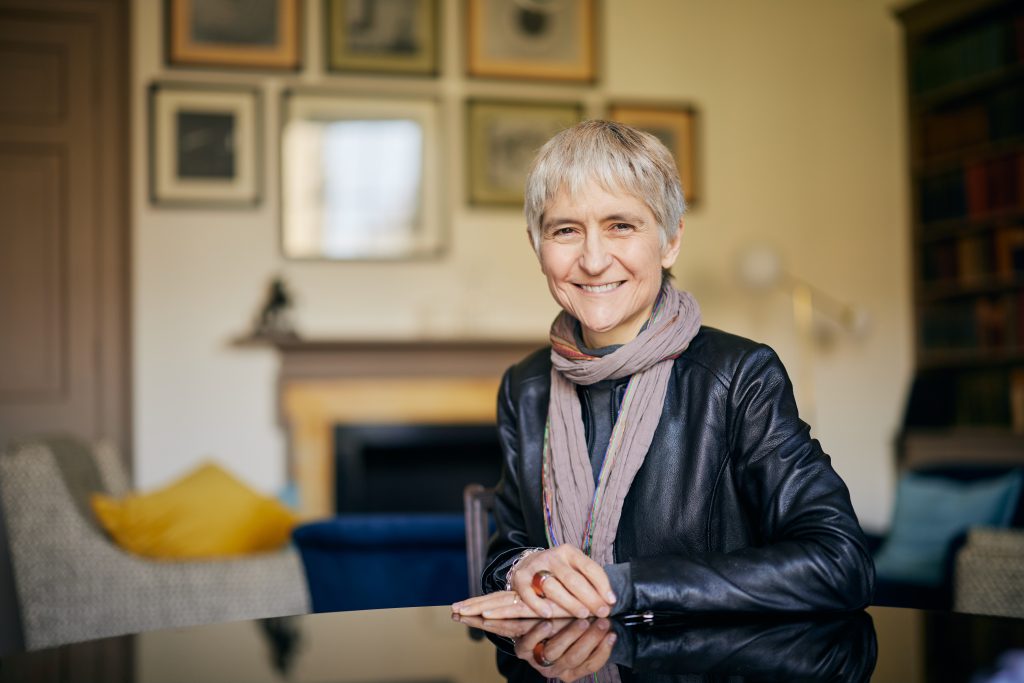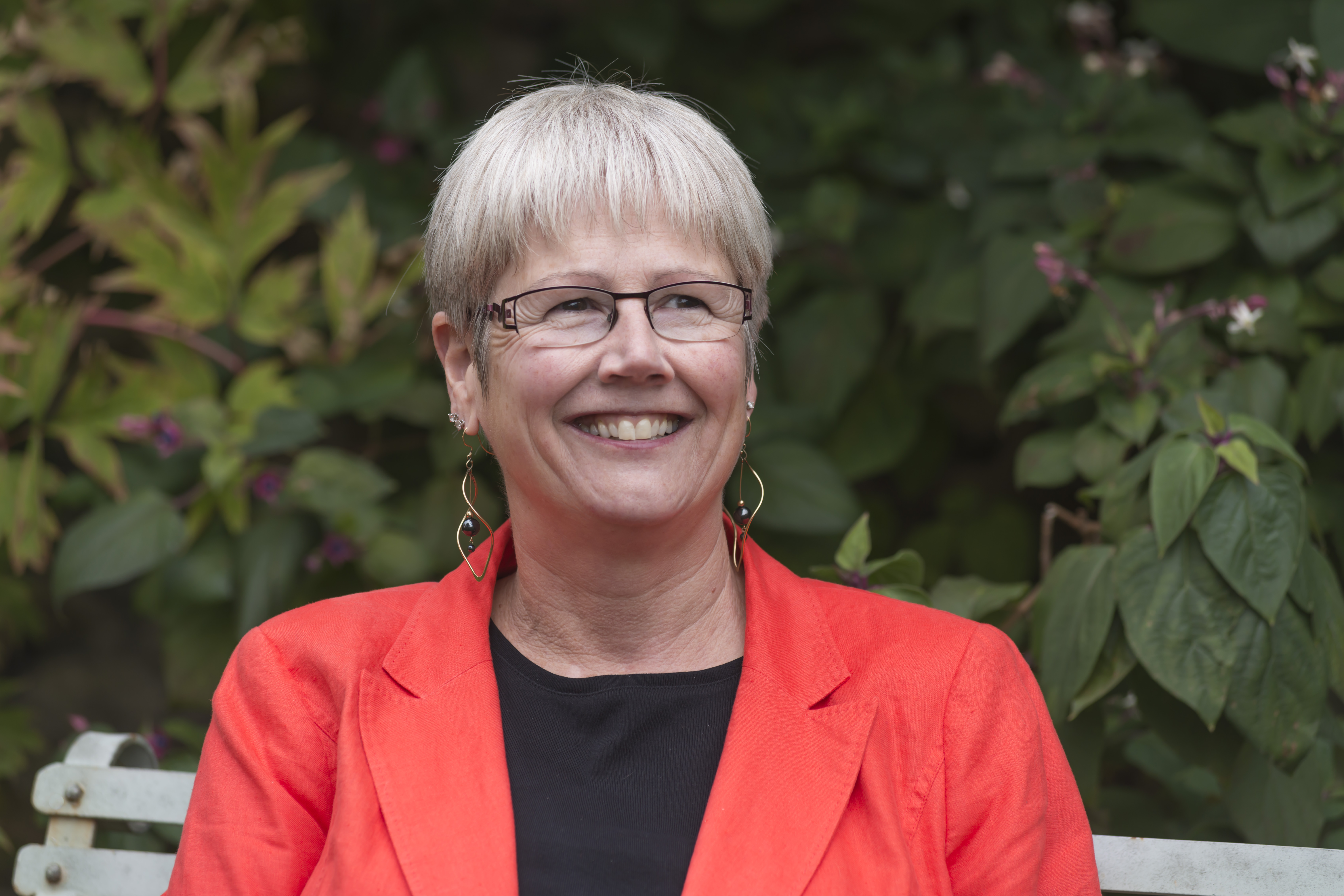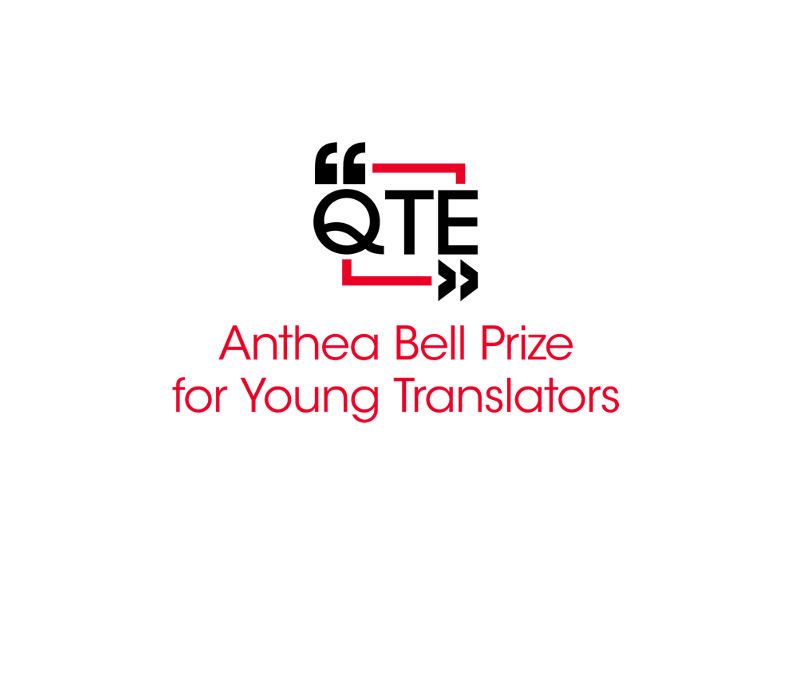As her Provostship draws to a close, Claire Diacopoulos Craig reflects on six extraordinary years, from leading the College through the pandemic to deepening its founding mission of inclusion. A full reflection from Claire will be printed in the 2025 College Record.
What was your first impression of Queen’s when you arrived?
I have felt at home in Queen’s since the first moment I walked up the steps from the High Street, through the forbidding doors, and arrived into the beauty and calm that is Front Quad. I am grateful to the College community and Old Members around the world who have welcomed me and made the time such a pleasure.
What surprised you about being the Provost?
I knew I was the first female Provost, but I didn’t expect to be the first Provost to shut the College! The national lockdown of Trinity 2020 may have been the first time the main College site was empty since 1341, and it certainly didn’t happen during the two world wars of the 20th century. But what stays with me is how the Governing Body set a principled direction to do everything we could to keep activities in person, within the law. Through that experience of deprivation, we learnt anew how the physical coming together of people and place, particularly in the tutorial system, is essential to what makes the College such a transformative place.
The physical coming together of people and place, particularly in the tutorial system, is essential to what makes the College such a transformative place.
What was the most challenging thing about being the Provost?
An unexpected challenge was the fact that there’s no official role for the partner of the Provost; you are in the College but not of the College. I feel very lucky to have had Chris’ support throughout my Provostship.
What inspires you about Queen’s?
One of the things I have found most inspiring is the way people in College live and work together across the boundaries of nation, religion, and culture. Members of our community hold strong views and are often directly personally affected by external events such as Russia’s invasion of Ukraine, the Hamas-Israel conflict, or the reactions to the death of George Floyd. The College both embraces passionate, reasoned debate, and requires civility – even kindness – to each other.
The College both embraces passionate, reasoned debate, and requires civility – even kindness – to each other.
How important has it been for you to connect Queen’s with its founding purpose?
It is core to the purpose of the College that students and Fellows are welcome here, wherever they come from. I see that welcome as being a natural continuation and extension of the College’s origin story, as a College for boys from the North West of England – which in 1341 was three days’ journey away. I am delighted that, with the support of many Old Members, we have also refreshed that heritage.
This year the Governing Body decided to back a second phase of partnership working in the homelands of our founder, Cumbria and Blackburn with Darwen, to support the brightest young people whose social and economic disadvantages mean that they are at risk of missing out on the opportunity to go to a top university. Meanwhile, the wonderful Queen’s Translation Exchange had 22,000 schoolchildren from around the UK take part in its latest competition.
You mention Old Member support; how significant is this to the College?
We didn’t just survive the global pandemic and external shocks and trends, we are thriving. The College is in excellent academic and social health. Due to Old Members’ generosity, we have endowed five more of our Fellowships. This moves us closer to the full academic independence that recent events in the US and elsewhere have shown is so important. Students are supported in music, sports, travel and, I’m personally particularly glad to see, a new arts fund. Meanwhile, Fellows are researching the big issues of today, of 5,000 years ago, and of the future.
Queen’s has long had a reputation for being friendly but how has its reputation evolved?
It is still a friendly College but, by many measures, including those that replace the now defunct Norrington League Table, in recent decades it has also quietly consolidated its position as a top ten College at the world’s top University.
Do you have a favourite Oxford term?
It has to be Trinity because of the long hours of daylight and the sunshine, and the celebrations at the end of the academic year. I particularly enjoyed the Summer Eights party on the boat house rooftop last year: it was a happy and colourful day.
Which event do you enjoy most in the College calendar?
Perhaps strangely, I get most satisfaction from the Governing Body meetings. I think it’s amazing that the College is led by 40 people. I’ve never come across this model anywhere else. The meetings can be a bit of a rollercoaster due to the depth and breadth of the matters covered, so every time it finishes, it feels satisfying, to a greater or lesser extent!
If you could take one College room or location with you when you leave, which would it be?
It’s more a time than a location. I love the College early in the morning. I come across from the Lodgings for a coffee from the excellent machine in the Senior Common Room at around 7 am and each season casts a different light (or no light!) along the mediaeval passageway. It’s a quiet time but there’s always someone to say hello to as the day is just starting.
Which College tradition is special for you?
The tradition of welcome that the second years give the first years. When cars arrive in Queen’s Lane or people arrive at the front gate, every Fresher is greeted and shown to their rooms. I also like the tradition for short speeches.
Where’s your favourite place in College?
The crypt, with its seven coffins of former Provosts from the early 1700s. The crypt is under the Chapel, and you can only get to it by climbing down vertical stairs backwards.
What’s your favourite dish at Queen’s?
The red cabbage gazpacho with whole grain mustard ice cream.
Are there any memorable student moments that have stuck with you?
I was very touched when the MCR bought me chocolates at the end of one academic year. It was an unexpected and kind gesture.
Can you recommend a book?
The Future by Naomi Alderman. It’s a science fiction novel in which a group of very determined people manage to trick the heads of all the tech companies into believing that the world has had an apocalypse. And so they retreat to an island and the group, the subversive group, ends up running tech companies in such a way that social media is no longer divisive or addictive. They create a world in which all forms of social media and the internet, as far as we can tell, are human-centred for the good of people.
Header photo: David Fisher



